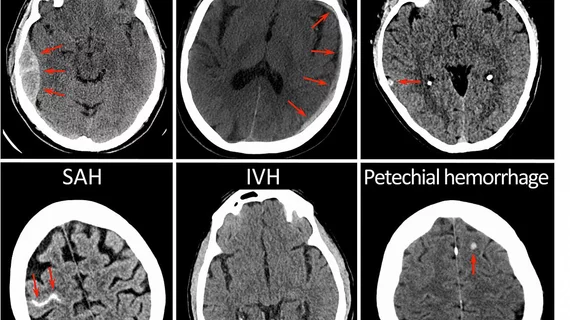New patterns detected on CT scans can help predict outcomes in patients who’ve suffered mild traumatic brain injuries, according to a nationally funded study.
Survivors of moderate-to-severe TBI (msTBI) often experience long-term challenges in returning to normal daily life, along with a higher risk of poor health and cognitive consequences. But after analyzing nearly 2,000 patients and their post-injury outcomes, the researchers believe there’s more reason for hope.
“Results from this large, prospective observational study … provide a more encouraging view,” Michael A. McCrea, PhD, with the Medical College of Wisconsin’s Department of Neurosurgery, and colleagues wrote in the study. “A large proportion of the participants with msTBI showed major improvement in life functioning, with many regaining independence between two weeks and 12 months after msTBI,” they added.
The findings are part of the Transforming Research and Clinical Knowledge in Traumatic Brain Injury (TRACK-TBI) study, a large research effort funded by the National Institutes of Health to investigate the short- and long-term impact of head injuries and possible treatments.
McCrea and co-authors discovered three specific patterns on CT exams that correspond to different types of brain damage. Each was also associated with various outcomes.
Those findings suggestive of worse outcomes after 12 months included: contusion (bleeding into brain tissue), subarachnoid hemorrhage (bleeding into cerebrospinal fluid over the brain), subdural hematoma (bleeding between the brain and the brain’s covering), and intraventricular hemorrhage (bleeding into the fluid-filled spaces in the center of the brain), the authors explained.
At the same time, epidural hematoma (bleeding between the skull and outer brain) was associated with “incomplete recovery” at two weeks and three months, with no negative long-term consequences.
While the discoveries are positive, McCrea and co-authors warned providers must remain cautious.
“These findings should not be misinterpreted to imply an overly optimistic picture of outcomes after msTBI, because a high proportion of participants were left with considerable disabilities,” the authors explained. “However, these data further inform the natural history of recovery after msTBI and, in particular, wield important translational implications for early clinical management of patients with msTBI.
Read the full study here.

